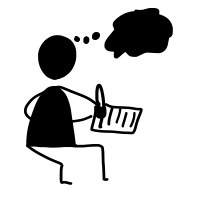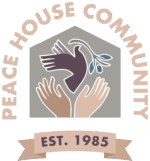
Those of you who have read these columns regularly have probably noticed that I like quoting songs, books, plays and anything else that strikes me. Yesterday I watched a clip from the Live Aid concert in 1985 and heard Nik Kershaw sing “Wouldn’t It Be Good.” I don’t know what he had in mind when he wrote the song, but on that day the song took on new meaning. Live Aid was, after all, a worldwide fundraiser to deal with a famine that was devastating Ethiopia and killing millions. Kershaw sang:
Wouldn’t it be good to be in your shoes
Even if it was for just one day?
Wouldn’t it be good if we could wish ourselves away?
Wouldn’t it be good to be on your side?
The grass is always greener over there
Wouldn’t it be good if we could live without a care?
This was just the chorus. The verses add even more poignancy as they are sung by someone who is suffering an unknown fate, and are addressed to anyone who has better life. Kershaw may have felt like he was singing on behalf of the starving millions to the billions who had enough t at least survive, or he may just have been singing his current hit single, but either way, the song has an eternal resonance.
Over the last month or two, I and several people I have spoken with at PHC have noticed a change in the atmosphere in our neighborhood. People are more on edge. Tempers are shorter. Nerves are frayed. Considering what the community members at Peace House Community normal endure (poverty, homelessness, discrimination, apathy, bureaucracy and more), it takes a lot to makes things worse. Maybe covid really has reached the point where it is breaking people’s souls. Maybe the prospect of another winter of either isolation or living outdoors is just too much to handle.
Whatever the cause, things really do seem to be getting worse for those at the bottom of the social ladder, even as the stock market soars and those with the resources can start taking vacations again. While I try to make their voices heard, I can’t really speak for them, since I’ve never been through what they are experiencing. I can try to image what it feels like to face months of subzero temperatures in a tent. I can think about a society that considers the homeless to be an inconvenience to people who have homes because it makes the streets dirty, but doesn’t realize that real people are homeless.
The closest I can get to speaking for PHC’s community members is to quote one of them (as best I can). He started talking to me about his current life, and after 15 minutes I was saddened that I hadn’t been able to record what he said. As best as I can remember, here is just a snippet of what he said:
We used to be tight, you know? The whole group of us, we always watched out for each other. If you stole from one of us, you had to deal with all of us. But now, we’re all pulled apart. Covid did a real number on us. Now, it’s like we’re scared to get close because we don’t know who’s going to be next to die. It hurts too much to be friends now because we think we’ll lose each other. We used to share everything. You need something? I’d give it to you. Now, we steal from each other, get in fights with each other. But I still don’t want to go into housing. This is my place. My wife and I spent our time here before she passed. My wife loved the alley behind Peace House. I feel like I’d be turning my back on her if I left it. You know, in the mornings, when it’s quiet, before everyone gets moving, I come down here and talk to her like she’s still here. “How was your night? Did you sleep good?” That sort of thing.
by Marti Maltby, Director Peace House Community – A Place to Belong
This article originally appeared in “The Alley,” the newspaper for the Phillips neighborhood of Minneapolis.
